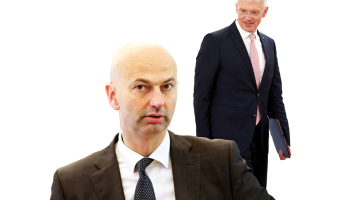An often raised question recently has been what Greece can learn from Latvia's path of internal devaluation i.e. the compression of wages and prices that should lead to increased competitiveness. I don't think Greece has anything much to learn because I don't think they are able or willing to go Latvia's way. In Latvia internal devaluation has been going on for more than a year, in Greece it hasn't really started yet and already three are dead, riots and strikes are commonplace etc.
But does internal devaluation work in Latvia? Seemingly so. The following graph is one way of displaying Latvia's competitiveness. It shows the development of Latvian consumer prices compared to consumer prices in trading partner countries. An increase is a loss of competitiveness (Latvian prices rising faster than foreign prices) and a decrease is a gain in competitiveness.














